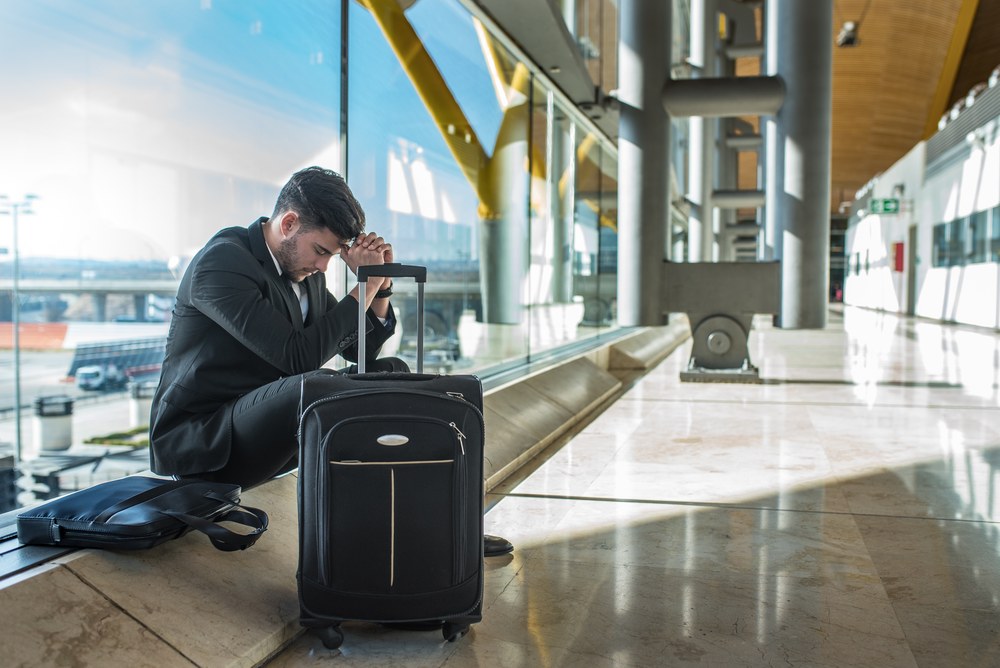How can you overcome jet lag and maintain your well-being?
Travelling across several time zones can be an exciting experience, but jet lag can quickly put a damper on the adventure. Jet lag, characterised by intense fatigue and an imbalance in your biological rhythm, can turn the first few days of your holiday into a real challenge. Fortunately, there are proven strategies for minimising its effects and making the most of your trip. In this article, Beep Valet explores the best practices to adopt before, during and after your flight.
Understanding jet lag
Before trying to combat jet lag, it's essential to understand the phenomenon and the factors that influence it.
The science behind jet lag
Jet lag occurs when our internal clock, which regulates essential functions such as sleep, appetite and body temperature, is thrown out of sync by the rapid passage through several time zones. Our bodies follow a circadian rhythm of around 24 hours, and rapid travel disrupts this cycle, creating disorientation.
Factors influencing the severity of jet lag
Various factors influence the intensity of jet lag. The direction of the flight (east or west), the number of time zones crossed, and the flexibility of sleeping and eating habits all play a role. Eastbound flights are generally more difficult to manage because they require the internal clock to be advanced, whereas westbound flights require it to be delayed.
Symptoms and effects of jet lag
Common symptoms include fatigue, digestive problems, difficulty concentrating and general malaise. The intensity of these symptoms varies and can last from a few days to a week, depending on individual sensitivity and travel conditions.

Pre-flight preparations
Adequate pre-flight preparation can significantly reduce the impact of jet lag.
Gradual adjustment of sleep schedules
Start adjusting your sleep schedule a few days before departure. If you're travelling east, go to bed earlier and get up earlier. If you're travelling west, do the opposite. This gradual transition helps your body begin to adapt to the new time zone.
Pre-trip sleep planning
Make sure you get plenty of sleep before your trip. A lack of sleep beforehand can worsen the symptoms of jet lag. Getting enough sleep strengthens your body and better prepares it to cope with disruption.
Psychological and physical preparation
Prepare yourself mentally by reducing stress through relaxation or meditation exercises. Physically, stay active and maintain a balanced diet to strengthen your body before the trip.
Techniques during the flight
Your in-flight behaviour also influences how you experience jet lag.
Time setting and in-flight sleep management
As soon as you get on board, set your watch to the time of your destination. If it's night at your destination, try to sleep on the plane. Use earplugs, an eye mask and travel pillows to improve your comfort and promote sleep.
Nutrition and hydration at altitude
Avoid heavy meals, alcohol and caffeinated drinks during the flight. Opt for light meals and drink water regularly to stay hydrated. Hydration is crucial because the air in the cabin is very dry.
Physical exercise and relaxation
Do small exercises at your seat or walk down the aisle to keep the blood flowing. Do some stretching or breathing exercises to stay relaxed and reduce discomfort.
Adjustments after arrival
Adapting to a new time zone doesn't stop when you land. Here's how to make the transition easier.
Adapting to the new local rhythm
Try to adapt immediately to the local rhythm. If you arrive in the morning, resist the urge to sleep immediately. Stay awake and active until normal bedtime in the new time zone.
Exposure to natural light
Natural light helps to resynchronise your internal clock. Get out in the sun during the day to help you adjust your circadian rhythm more quickly.
Managing sleep and meals after the flight
Maintain regular meal and sleep schedules, even if your internal clock is disturbed. Avoid prolonged naps, which can disrupt your night-time sleep and delay adaptation.
Although jet lag is a common challenge for travellers, proper preparation and management can significantly reduce its effects. By adopting strategies before, during and after the flight, you can reduce the inconvenience and enjoy your trip to the full. Don't forget to allow yourself time to recover on your return, and consult a health professional for advice tailored to your situation. Enjoy your trip, and may your travels be as comfortable and pleasant as possible!
